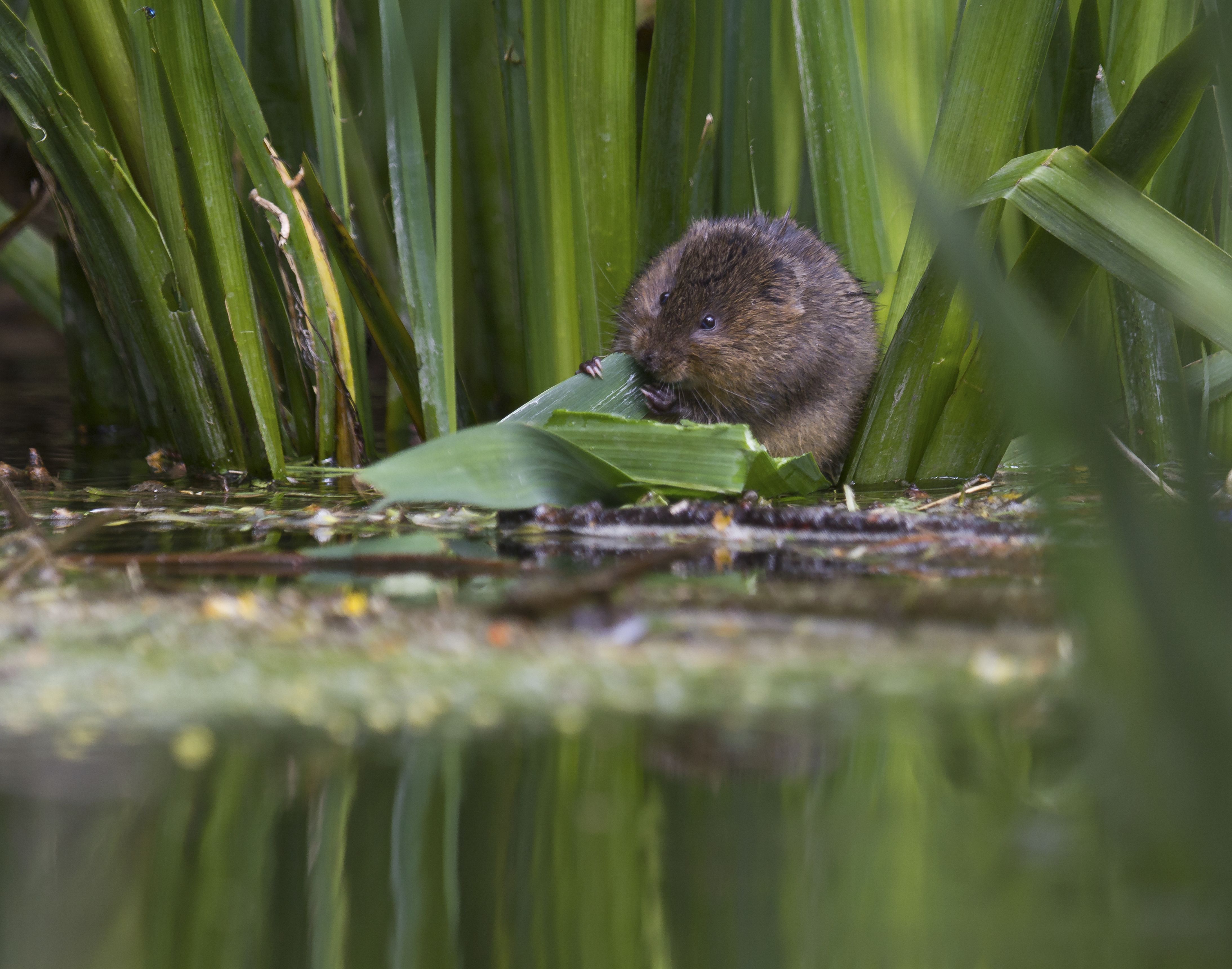
3 minute read
The elusive water vole
By Kirstine Bowen, Marketing and Communications Manager
How we are protecting one of the UK’s most endangered mammals
The water vole was once a river regular. You may have heard about them in stories from grandparents who would watch them from the riverbank. Sadly, you would be lucky to catch a glimpse of this elusive mammal today. Whilst water voles are still present in Wiltshire, they are now absent from many other counties, having declined nationally by an astonishing 97% since the 1970s. Wiltshire’s rare chalk streams are now a lifeline for the endangered water vole.
Water voles are much bigger than other vole species. They have chestnut-brown fur, a rounded nose, small ears and a furry tail. Though you may not see one because of their secretive nature, you can look out for the signs of water voles, such as burrows in the riverbank or tell-tale piles of tic-tac shaped droppings by the water’s edge. They like to sit and eat in the same place, so piles of nibbled grass and stems may also be found by the water's edge, showing a distinctive angled cut at the ends.
Water voles are a vital part of river ecosystems. Their burrowing, feeding and movements help to create conditions for other animals and plants to thrive. However, this charming riverside creature is thought to be declining at an alarming rate for a number of reasons:
• Habitat loss – Over the years, floodplains have been built on and vegetation along riverbanks removed.
• Pollution of waterways – Their habitats are threatened by pollution from agriculture, sewage, roads, house-building and single-use plastics; chalk streams are particularly vulnerable to pollutants.
• Predating species – The introduction of the American mink into the UK for fur farming is thought to be a big cause of their decline; many mink have escaped and now thrive in the wild.
As a protected species, we need to do all we can to ensure Wiltshire’s rivers and wetlands are in the best possible condition for water voles to flourish. Together with other organisations, landowners and farmers, we are working hard to create better habitat for water voles across our county and beyond:
• We have been regrading riverbanks and adding more woody debris to improve flows.
• We have recently improved habitat for the small colonies of water vole at both our Smallbrook Meadows and Bay Meadows nature reserves.
• With the ‘Save our Chalk Streams’ campaign, we have joined forces with the Hampshire & Isle of Wight Wildlife Trust to call for new, pioneering, bespoke protections for all chalk streams, which would make polluters pay and hold water companies to account.
Our hope is that one day, many of our rivers will once again be filled with the gentle ‘plopping’ sound of water voles plunging into the water.

We recently joined other Wildlife Trusts at a parliamentary event to discuss with MPs from Wiltshire and other counties what Government can do to better protect our iconic chalk streams.
Help us save our chalk streams for water voles and other precious wildlife!
Urge your MP to support new, bespoke legal protections: wtru.st/SaveChalkstreams










